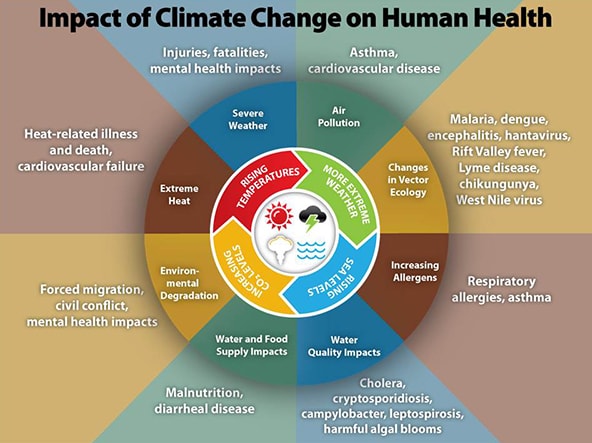- Greenhouse gases, such as carbon dioxide, pose a danger to public health and welfare, according to an exhaustive review that looked at 275 scientific studies published over the past nine years. The new study showed that there is now even more evidence that greenhouse gases are harming human health and welfare there’s absolutely no scientific basis for questioning the Endangerment Finding, review lead researcher Philip Duffy. It began when Massachusetts and other states sued the EPA during President George W. Bush’s administration, asking the agency to regulate greenhouse gases. In 2007, the Supreme Court ruled that not only does the EPA have the authority to regulate greenhouse gases under the Clean Air Act, but it also can’t refuse to do so if these pollutants are found to endanger people.
- Science shows that the new review grouped the findings into different categories: public health, air quality, agriculture, forests, water resources, sea level rise, infrastructure and wildlife. The four new categories include ocean acidification, national security, economic well-being and violence. Here are more in-depth looks at several of them.
- Overview of public health; People in more than 200 U.S. cities have an increased risk of premature death because of future warming, the researchers found. Extreme heat is linked with sleep loss, kidney stones, low birth weight, violence and suicide. Exposure to ozone and other air pollutants, including smoke from forest fires, can be bad for human health. Extreme weather events intensified by climate change can lead to physical trauma, disease outbreaks, interruption of health care delivery and mental health problems. Rising temperatures and carbon dioxide levels affects people with allergies. Certain crops are expected to produce fewer nutrients. Population displacement and armed conflict can also amplify risks to human health.
- Water resources –With less snowpack in the mountains, the West and Southwest may experience more droughts. Reduced snowpack can lead to reduced river flow, which can threaten rare and endangered species, such as salmon and wolverines. Climate change is also expected to erode water quality in the United States because of nutrient loading (such as from fertilizer or animal waste), especially in the Midwest and Northeast.
- Sea level rise will increase the risk to coastal communities, economies and infrastructure, largely because of flooding, erosion and extreme events. These effects can lead to displacement through “climate gentrification,” in which people living at higher elevations have higher-priced properties. The movement of goods among major port cities will likely be affected, too, causing economic disruptions..
- Economic well-being: An increase of 1.8 degrees Fahrenheit (1 degree Celsius) over 75 years is expected to permanently reduce GDP by about 3 percent.


- (Images/videos taken from google/IE)


Leave a comment